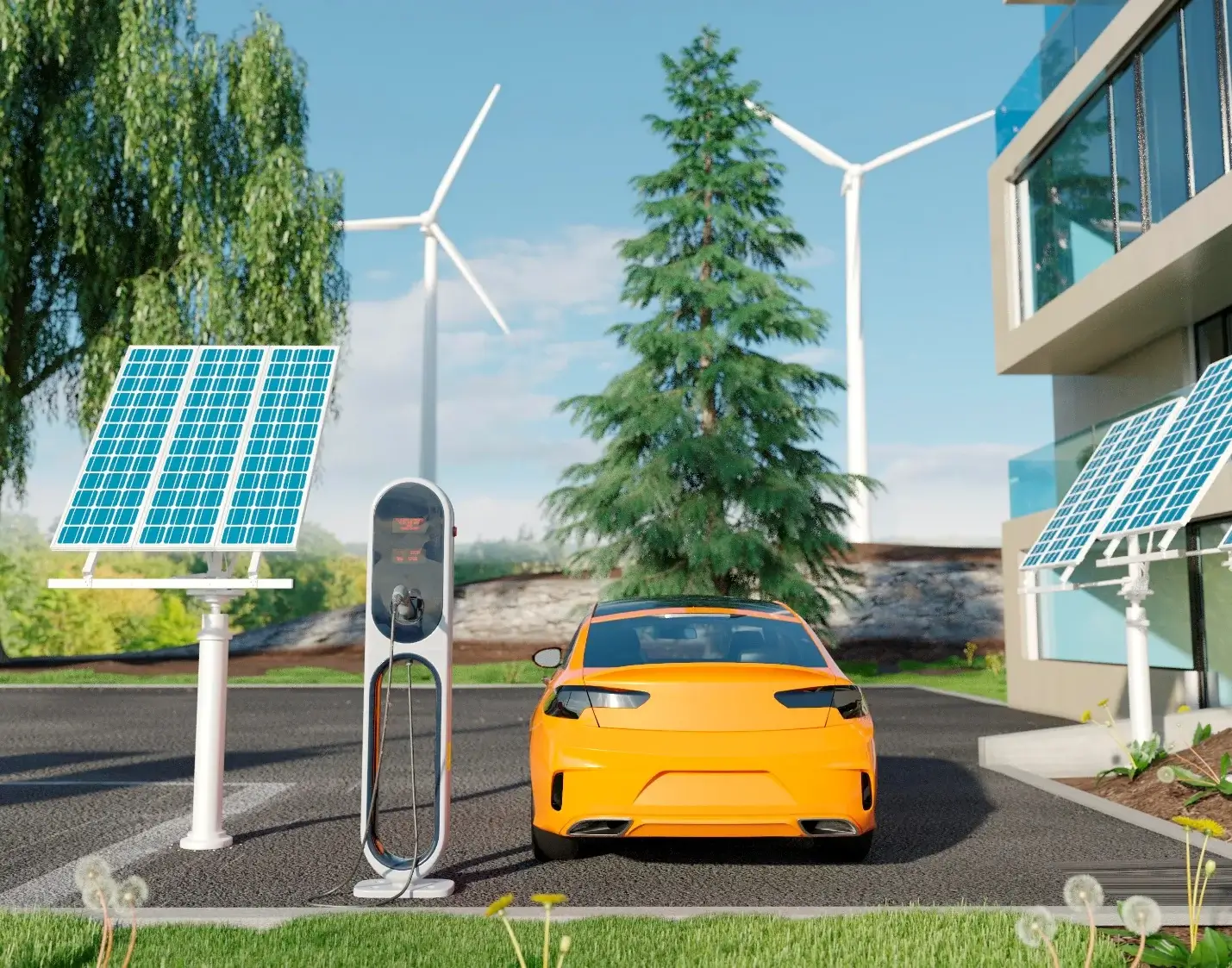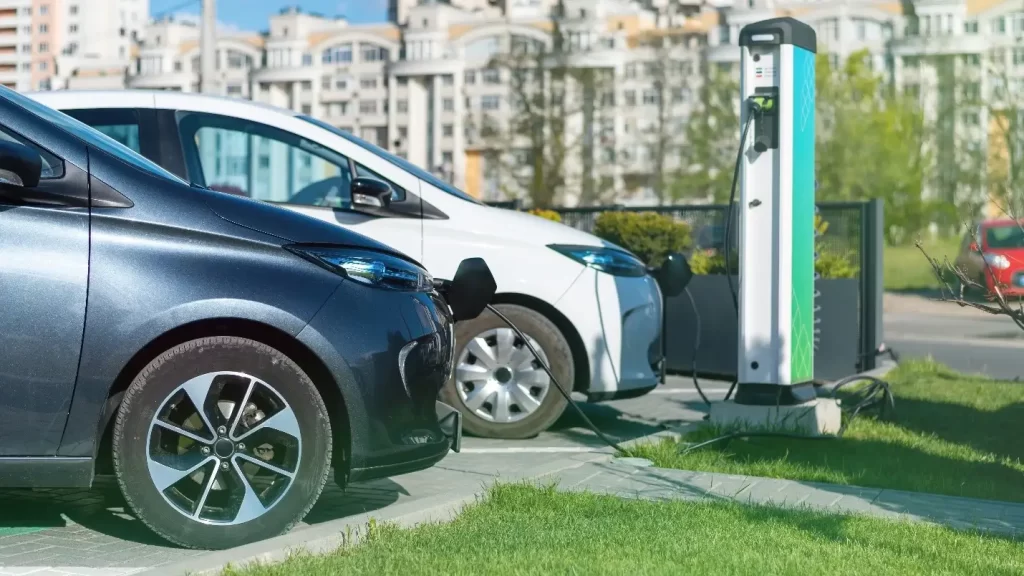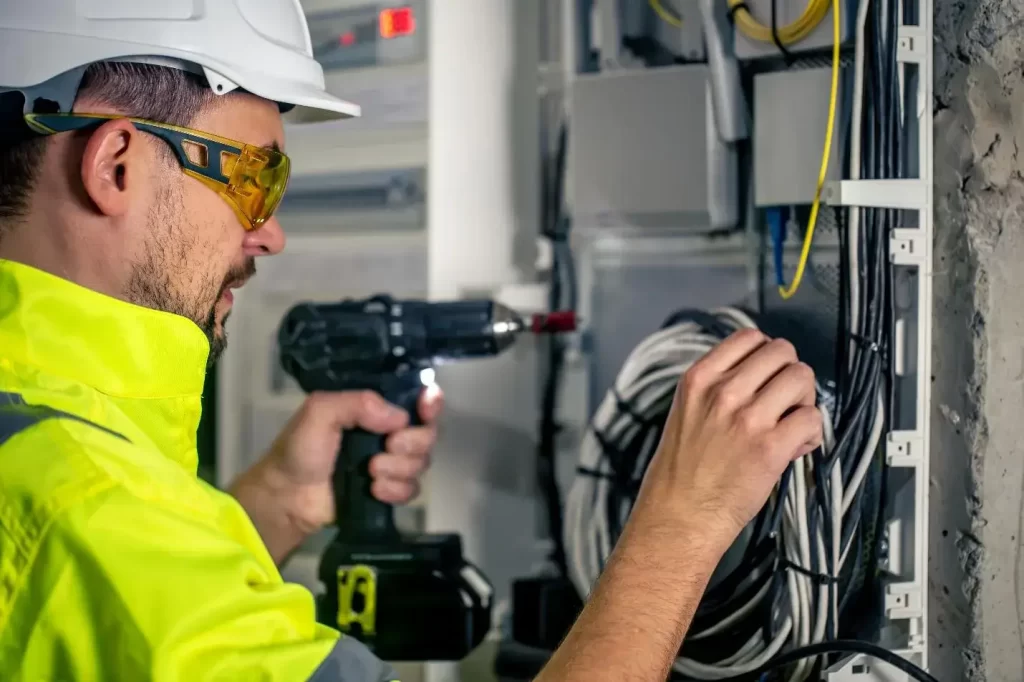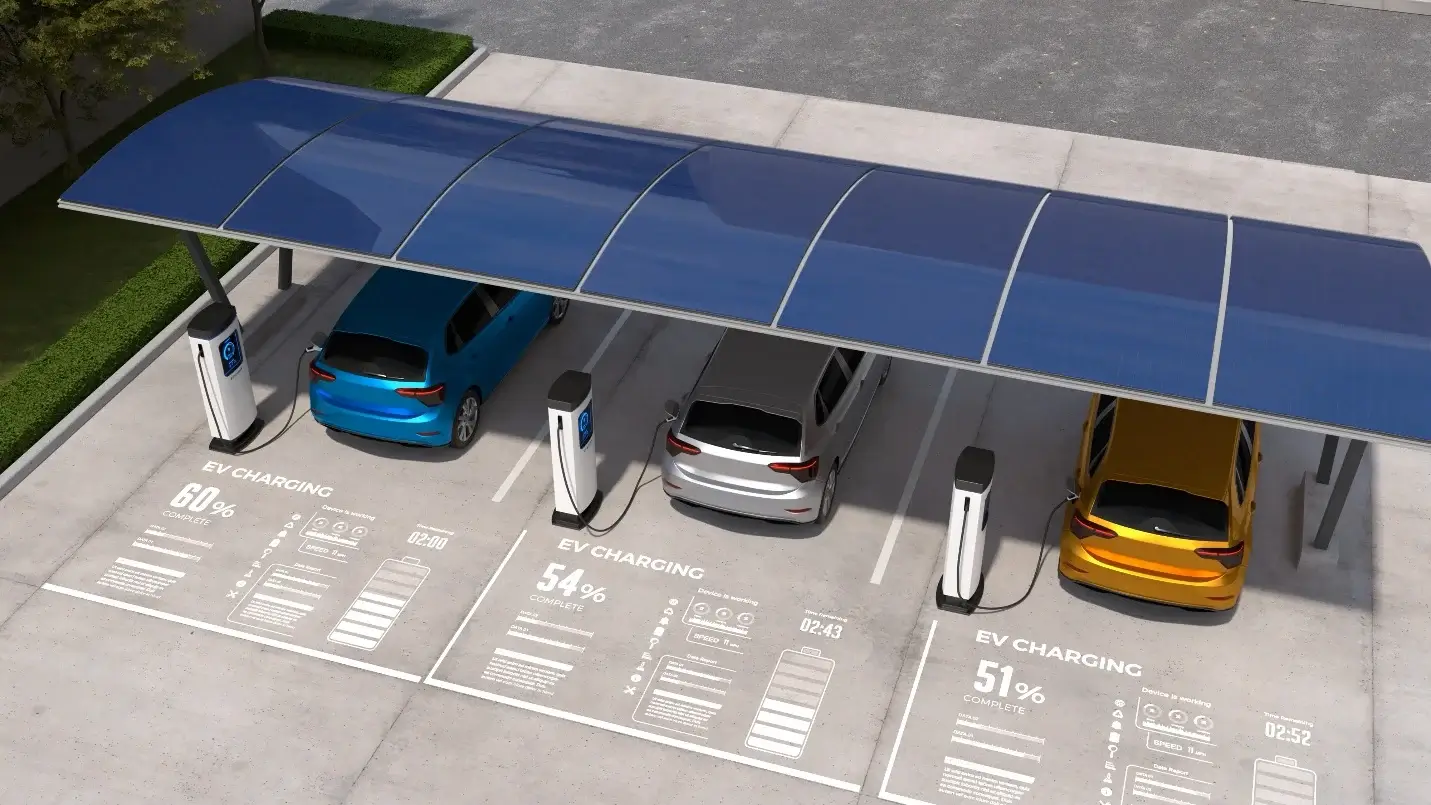Summary
With EV adoption on the rise, commercial charging stations present an opportunity for businesses like yours to boost revenue and position your brand for long-term success. This article is a guide for future EV charging businesses.
Table of Contents
Introduction
If you are a retail or hospitality business owner, property manager, or landlord in an area where many people live, you may wonder, “Are commercial EV charging stations profitable?”. This is a valid question, because installing a commercial charging station is very expensive, even with subsidies and tax credits offered by federal, state, and local governments.
The good news is that you can earn money from electric charging stations in various ways. You can charge customers directly to maximize profits, increase foot traffic to expand your business’s profitability, or get other companies to subsidize the cost of the chargers for branding opportunities.
This article is a guide to installing commercial EV chargers and turning them into successful business enterprises.
Why Invest in Commercial Charging Stations?
Investing in a commercial charging station can provide a lucrative return on investment (ROI) for your business. Some of the reasons to invest in EV charging stations include:
1. Attracting New Customers
Installing an electric vehicle charging station can attract new customers to your business. EV drivers will prioritize locations where they can do business and top up their cars.
2. Boosting Brand Image and Sustainability
Investing in EV charging stations demonstrates your business’s commitment to reducing its carbon footprint. This can boost the brand’s image and cement your position as an environmentally responsible company.
3. Generating Additional Revenue
Monetizing electric charging stations is a great way to generate additional revenue for your business. With a proper charging structure and regular maintenance, these chargers can pay for themselves in the long run and be a huge success.
4. Increasing Property Value
People are more likely to pay above market value for homes with crucial upgrades or additional amenities. Adding an electric vehicle charging station to your property makes it more attractive to potential buyers and renters.
Key Components of a Commercial Charging Station

Every commercial EV charging station has essential components to support fast and reliable charging. Some integral components of EV charging stations include:
1. The Charging Unit
EV charging units come in different levels.
- Level 1: This charger provides a 4-5 mile range per hour. It has the lowest charging level and is not suitable for commercial purposes.
- Level 2: This charger charges through a 208-volt outlet. It provides adequate infrastructure for commercial settings, including hotels, workplaces, retail centers, etc.
- Level 3: This charger, also known as a Direct Current (DC) Fast Charger, provides greater power and speed than levels 1 and 2. It uses a 450-volt outlet and can charge an electric car in 30 minutes.
2. Power Supply
EV charging stations depend on a reliable power supply to connect car chargers to the electrical grid. Electrical components for electric car charging points include:
- Transformers
- Distribution panels
- Wiring and cables
3. Connectors
Connectors are essential for safe, reliable, and efficient charging. Different connector types include:
- Type 1 (J1772): This connector is the most common in North America and Japan for Level 1 and 2 AC charging.
- Type 2 (Mennekes): This type 2 connector is standard for level 2 AC charging in Europe. It is built for higher power delivery and can support single-phase and three-phase electricity for faster charging speed.
- Combined Charging System (CCS): This connector is used in America and Europe. It combines J1772 and Mennekes models to form a versatile AC and DC charging option.
- CHAdeMO: This connector was developed in Japan. It supports bi-directional charging and enables vehicle-to-grid functionality.
Steps for Electric Charger Installation

Partnering with a commercial EV charging provider like Tercero Inc. in most commercial applications will be the best for your project.
1. Site Assessment
Before installing electric car charging points, you must conduct a site assessment to determine your site’s suitability for the installation. Some things to consider during the evaluation include site location and accessibility, power supply and capacity, charger location, etc.
2. Charger Selection
While there are three EV charging levels, only two are suitable for public charging (Level 2 and DC Fast Chargers). Even then, to improve customer experience, you must determine features to include, such as smart charging capacity, network connection, etc.
3. Approval and Permitting
Permits are required if you want to install public charging stations. They are needed for electrical work and necessary site adjustments. Installing EV chargers without permits can lead to safety risks, legal sanctions, or demolitions.
4. Car station Charger Installation
Once the required upgrades have been made and the right charger has been selected, the charging station can be installed. Installation involves mounting the chargers on a pedestal, adding safety features, and connecting them to the electrical grid.
5. Post-Installation and Maintenance
Do a final inspection to meet local electrical codes and regulations. Also, regularly inspect and clean the charger to keep it in top shape. And schedule professional maintenance with a reliable EV charging solutions provider.
Choosing the Right Commercial Charging Station Provider

Choosing a reliable provider for your car charger installation is essential for convenience and peace of mind. Here are some factors to consider when choosing a provider:
- Coverage Area: Make sure the provider has charging stations available in locations that are convenient for your usual routes.
- Charging Speed: Faster chargers can reduce dwell time, letting you get back on the road quicker.
- Pricing Structure: Look for providers that provide clear and transparent pricing with no hidden fees.
- Reliability: Ensure your preferred providers have stations that are well-maintained and operational.
Cost and ROI of Electric Charger Installation
It is no secret that installing an EV car charger comes with a huge financial burden. The initial investment includes purchasing the charging units and the cost of installing them. Installation costs vary depending on the type of charging station selected, the electrical upgrades needed, and the location.
The cost breakdown for commercial chargers is as follows:
- Equipment Costs: $1,500 to $200,000 per unit, depending on the type of charger.
- Installation Costs: $3,000 to $100,000 per station.
- Operational Costs: The expected monthly electricity, maintenance, and software fees are $50 to $200 per charger.
- Optional Features: Network capabilities, branding, etc, can add $1,000 to $5,000 per station.
While installation is expensive, you can leverage various programs and strategies to reduce costs. Additionally, with the widespread adoption of EVs, charger installations can spur you on to great success. Some long-term benefits and ROI include:
- Increased customer footfall.
- Increased property value.
- Revenue generation.
- Tax credits and rebates from federal, state, and local authorities.
- Enhanced sustainability image.
Future Trends in Electric Charging Infrastructure
Key EV charging trends include:
- Fast and Ultra-Fast Charging: Modern EVs and charging stations are moving towards fast ultra-fast charging capabilities, which will charge a vehicle’s battery in minutes and make EVs more practical for everyday use.
- Wireless Charging: This eliminates the need to charge plugs and connectors. Vehicles can charge automatically once they are parked over a charging pad.
- Smart Charging Networks: This technology allows you to schedule charging for off-peak hours, reducing grid strain and customer costs.
Conclusion
While setting up a commercial charging station is expensive, you can recoup your investment through various strategies, including getting a funding partner, tax credits, rebates, grants from federal and local authorities, and charging fees. If you need more information on how to manage your charging station effectively, contact Tercero Inc. now.
FAQs
A commercial EV charging station is a place where electric vehicle drivers can recharge their vehicle batteries for a fee.
There are three main charging levels: level 1 (the cheapest and slowest option), level 2 (faster charging and suitable for commercial use), and DC fast chargers (the fastest and most expensive option).
Level 3 chargers are often called DC chargers or superchargers because they can fully charge an electric vehicle in under an hour.
The types of charging are alternating current (AC), direct current (DC), and inductive charging.
With the increased adoption of electric vehicles, public charging stations have various revenue-generation capabilities. These include charging fees, advertisement revenue, increased foot traffic leading to additional sales, etc.
The cost varies depending on the charger type and site requirements. Level 2 chargers can cost $2,000 to $10,000 per station, and DC fast chargers can cost $10,000 to $50,000 per station.
To choose the right provider, consider the charging area, charging speed, pricing structure, and reliability.
Level 2 chargers can take 2-3 hours to fully charge, while DC fast chargers can provide an 80% charge in 20-30 minutes.
Yes, regular maintenance improves the efficiency and reliability of your chargers. Key maintenance tasks include software updates, cleaning, inspections, and professional maintenance.
Adding EV chargers to your commercial property makes the building more attractive to potential buyers.

